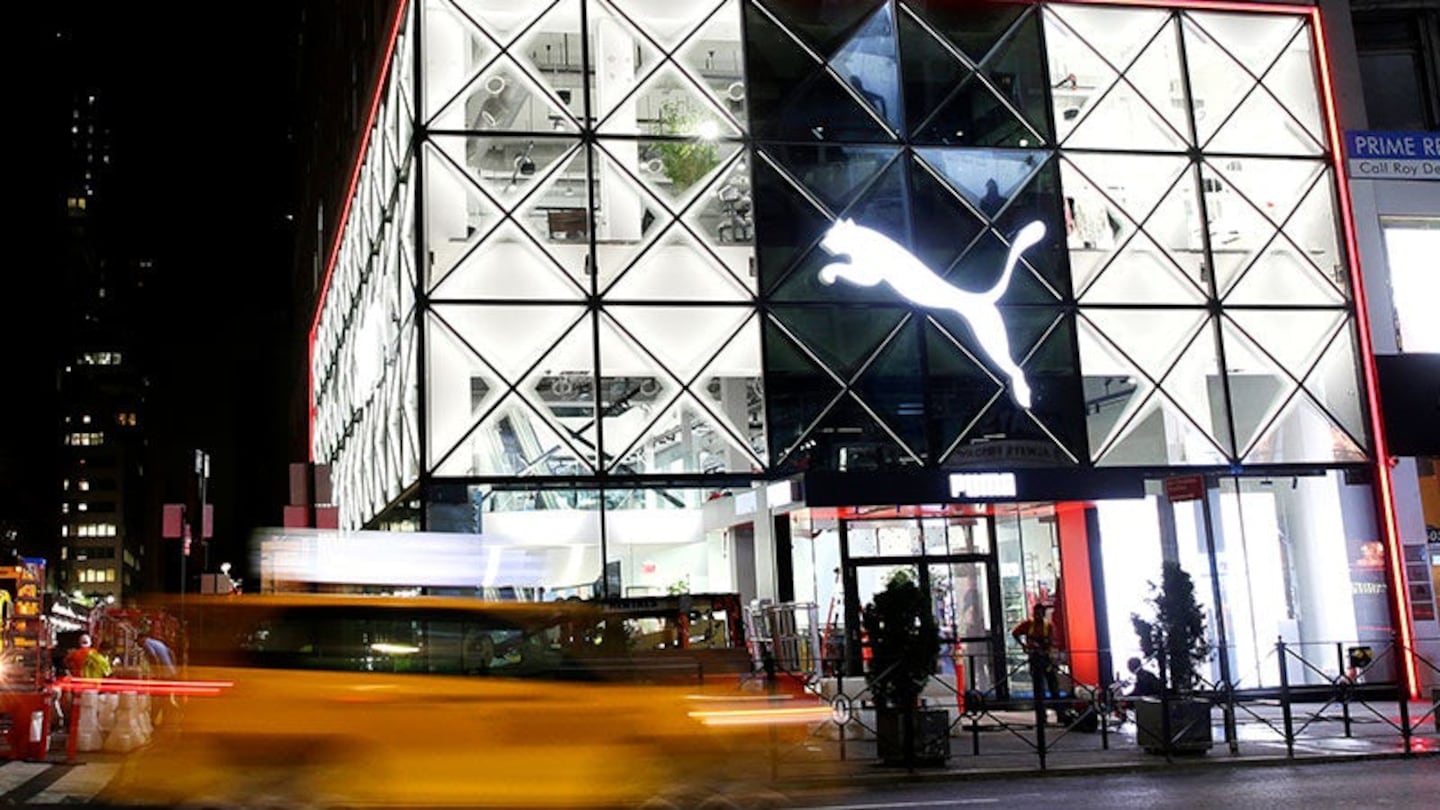
The Business of Fashion
Agenda-setting intelligence, analysis and advice for the global fashion community.

Agenda-setting intelligence, analysis and advice for the global fashion community.

HERZOGENAURACH, Germany — Shares in Puma fell 3.5 percent on Tuesday after French luxury group Kering said it had completed the sale of a 5.9 percent stake in the German sportswear company for approximately €656 million ($772 million).
Kering has increasingly focused on its high-margin luxury brands like Gucci, Saint Laurent and Balenciaga in recent years, spinning off 70 percent of Puma to its shareholders in 2018.
Puma struggled after it was bought by Kering for €5.3 billion in 2007, but it has enjoyed a revival in the last few years, helped by sponsorships of top soccer teams and partnerships with celebrities like Rihanna and Selena Gomez.
The sale reduces Kering's stake in Puma to 9.8 percent from a previous 15.7 percent. Kering, which had announced its plan to sell the stake on Tuesday, said the transaction corresponded to a selling price of €74.50 per share.
ADVERTISEMENT
Puma's shares traded down 3.1 percent at €75.7 at 07.28 am GMT.
In July, Puma reported second-quarter sales fell a currency-adjusted 30.7 percent to €831 million and earnings before interest and taxes slumped to a loss of €114.8 million as coronavirus lockdowns closed most global sports stores.
However, sales have rebounded as stores have reopened and the pandemic has encouraged more people to take up exercising, with rival Nike posting better-than-expected results in September and giving a strong sales forecast.
The Nike results had helped Puma shares to return to levels last seen before coronavirus hit in March.
Puma's largest shareholder remains Artemis, the holding company for the Pinault family that founded and controls Kering, which has a stake of just under 29 percent.
By Sudip Kar-Gupta and Emma Thomasson; editors: Jason Neely and Maria Sheahan.
The British musician will collaborate with the Swiss brand on a collection of training apparel, and will serve as the face of their first collection to be released in August.
Designer brands including Gucci and Anya Hindmarch have been left millions of pounds out of pocket and some customers will not get refunds after the online fashion site collapsed owing more than £210m last month.
Antitrust enforcers said Tapestry’s acquisition of Capri would raise prices on handbags and accessories in the affordable luxury sector, harming consumers.
As a push to maximise sales of its popular Samba model starts to weigh on its desirability, the German sportswear giant is betting on other retro sneaker styles to tap surging demand for the 1980s ‘Terrace’ look. But fashion cycles come and go, cautions Andrea Felsted.